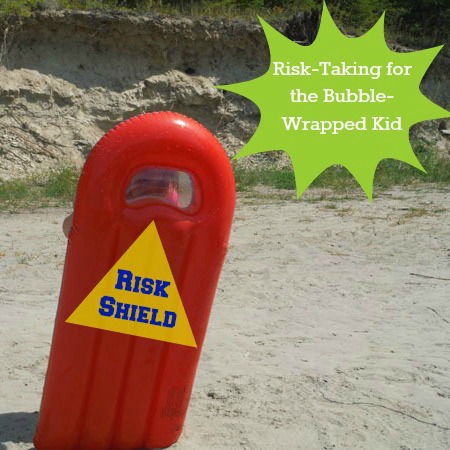
We know we shouldn’t do it. We know we should just sit there and let them figure it out. We know that by intervening every single time that something remotely dangerous is going to happen, we are ultimately not helping our kids. But what if you can’t help it?
If you’re like me, you can’t stand the so-called “Helicopter Parents” who constantly protect their child from every little bump and bruise that is part of growing up, but if you are also like me, you are probably more of a Helicopter Parent than you’d like to admit. As a teacher, I see it all the time: parents who never let their child make a mistake, parents who refuse to let their child participate in any behaviour or activity in which they may not excel, parents who jump in to make all decisions for their child before the child can even have a chance to analyze the situation. Despite seeing this in my job on an almost daily basis, and rationally understanding that this is not teaching the children anything, I find myself doing all of these things with my own children.
Camping with friends this past month, with five young kids under age five, it was common to hear the chorus of “Be careful!”, “Stop doing that”, “You’re going to get hurt”, “What are you thinking?!”, and by common, I mean every one to two minutes. Sitting and chatting with one of my dear friends about this one day, we realized that we are constantly trying to protect our children from everything and jumping in before they even have time to assess the situation for themselves. With this realization came a commitment: we would spend the rest of the day letting our children take risks (within reason, of course…nothing crazy like nixing lifejackets on the boat), and finally do what we should have done long before…shut up.
With one of the kids around walking age, we didn’t have to wait long to test ourselves. The little one crawled over to the cooler and stood holding on to the edge. No problems there, but then he coasted over to the trailer steps: the metal, jagged-edged trailer steps. One fall on those and that cute little bald head is not going to be feeling so good. We jumped in and redirected him. Was that a fail on our part? I don’t think so. Trailer steps are not the place to learn a hard lesson. Tottering over to the chair, he tried to crawl on top of it. Could he topple backwards? Yes. Would he get hurt? Maybe a little, but the mat was pretty soft and the chair low. Earlier in the day we would have both tried to redirect his attention, but with our new commitment to ignore our interrupting impulse, we let him climb. Did he fall? Yup. Did he cry? Yup. Did he try it again? No; instead, he went back to the cooler and showed off his new standing tricks there. We both looked at each other: could learning lessons really be this easy?
Ten minutes later the one-and-a-half year old tested us. He was walking around pushing a large dump truck. He then decided to stand in the back of it and jump over the front. Would he clear it? It was unlikely. Did we want to say something? You bet, but he would maybe get a sore bum for a minute and that would be that. Did we let him jump? Yup. Did he fall? No; in fact, he cleared it, and by a lot. The look on his face of sheer happiness made us all smile, and his self-clapping for the achievement would have been missed that if we intervened.
Moms reading this might think these examples are wimpy: we were just watching a kid cruise around furniture and items in a campground, and witnessing a small kid jump in and over toys. “What is so dangerous about that?” these moms might ask, and they would be right, which confirms just how desperately we needed this small challenge. We were hovering over our children like helicopters, and even something as silly as jumping over a toy was garnering warnings and interventions. We had become what we had always poked fun of at the playground: that mom who holds her seven-year-old son’s hand the whole way down the baby slide, or the mom who gives so many warnings to “hold on tight” or “watch where you’re going” that you leave the playground early just so you don’t have to listen to her anymore.
It seems to me that it goes against instinct to allow your child to take risks: you love them more than anything and want to protect them, but this over-protecting of our children is exhausting, both to them, and to us. After this mini challenge, I like to think of myself as a recovering “Helicopter Parent”. Our little experiment camping was short, but scary: I realized that I keep preventing my children from taking any sort of risk and I am doing more harm than good by doing so. Will I let them go in the car without a seatbelt? Absolutely not. Will I let them run full-tilt down a steep but sandy hill barreling full force into the lake? I hope so. I just need to keep reminding myself to do what every parent needs to do at times: shut up.



